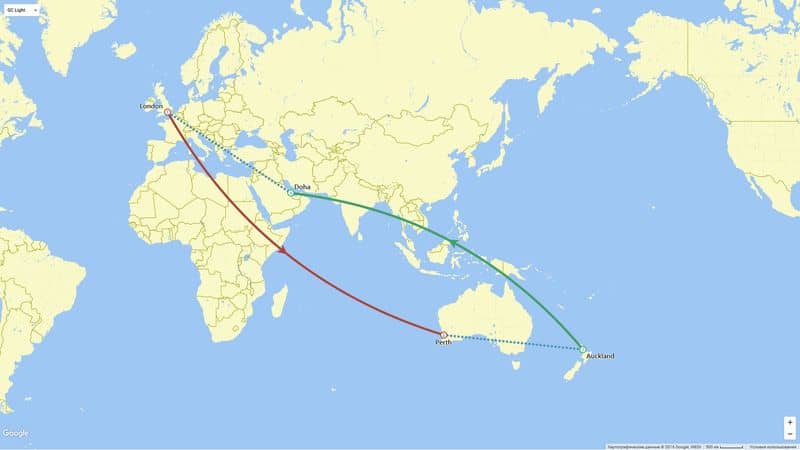Parenting is a journey filled with love, challenges, and growth. As children mature into adults, the dynamics of the parent-child relationship undergo significant shifts. This transition can be difficult for parents to navigate, as they must come to terms with new realities. Understanding and accepting these changes are vital for fostering a healthy relationship with their adult children.
This blog post aims to illuminate some of the hard truths parents might face as their children grow into independent individuals. Acknowledging these truths can pave the way for mutual respect, understanding, and a stronger bond.
1. Independence is Essential

Every adult child requires personal space to explore their own life. This independence allows them to make decisions and learn from their experiences. Parents may struggle with accepting this autonomy. However, recognizing the importance of independence is crucial for their growth. Supporting their journey without imposing personal expectations strengthens the relationship. It is essential for parents to step back, offering guidance only when needed. Respecting their boundaries fosters trust and respect.
2. Different Life Choices

Adult children may choose paths that differ from their parents’ expectations. These choices can include careers, relationships, and lifestyles. Accepting these differences is vital for maintaining harmony. Parents must remember that their children’s happiness is paramount, even if it deviates from traditional norms. By embracing their choices, parents encourage authenticity and self-expression. This acceptance can strengthen familial bonds, fostering a more inclusive and understanding environment. Mutual respect for individual preferences is key.
3. Financial Independence Varies

Not all adult children achieve financial independence at the same rate. Economic conditions, career choices, and personal circumstances all play a role. Parents may need to provide support at times. However, it’s crucial to encourage financial literacy and responsibility. Open discussions about money can ease tensions and promote understanding. Parents should avoid comparisons and recognize that each child’s financial journey is unique. Patience and support in this area can nurture independence.
4. Relationships Take Priority

As adult children form their own families, their priorities often shift. Romantic partners and offspring take precedence, which can feel like a loss for parents. Understanding this is a natural progression helps in adapting to new family dynamics. It’s important for parents to respect these relationships and the time they require. Embracing new family members as part of the extended family can create a supportive network. Acceptance and love help in maintaining close ties.
5. Geographical Distance

Adult children may move away for education, work, or personal reasons, creating physical distance. This separation can be challenging for parents who are used to close proximity. However, embracing this change is essential. Communication technologies offer ways to stay connected despite the miles. It’s important for parents to encourage their children to explore opportunities without guilt. Understanding that distance doesn’t diminish love is crucial. Support and acceptance make long-distance relationships work.
6. Different Values and Beliefs

Adult children often develop values and beliefs that differ from those of their parents. These differences can create tension if not handled with care. Open-mindedness and respect are essential in maintaining harmony. It’s crucial for parents to engage in open dialogues without imposing their beliefs. Celebrating diversity within the family strengthens relationships. Understanding that differing opinions can coexist peacefully is a valuable lesson. This acceptance lays the groundwork for mutual respect.
7. Career Ambiguities

Career paths are not always linear, and adult children might face uncertainties. Parents might struggle with accepting non-traditional career choices. Encouraging exploration and adaptability is crucial. Understanding that career satisfaction is more important than stability helps in supporting their decisions. Open communication about career goals and changes can alleviate parental concerns. Trusting their judgment fosters independence and self-confidence. Parents’ support plays a vital role in navigating career ambiguities.
8. Emotional Independence

Emotional independence is a sign of maturity in adult children. Parents might find it challenging to transition from being emotional anchors to supportive allies. Recognizing this independence allows young adults to handle their emotions. Parents should respect their need for emotional space, offering support when asked. This shift fosters a healthier, more balanced relationship. Encouraging emotional resilience and self-reliance is essential. It strengthens the parent-child bond over time.
9. Friendships are Crucial

Friendships become a cornerstone of adult life, often taking precedence over family. This can be difficult for parents to accept. Understanding that these relationships provide vital support is important. Encouraging social circles helps adult children build networks that enhance their lives. Parents should appreciate the diversity friendships bring. Embracing these relationships as extensions of the family can strengthen connections. Recognizing the role of friends fosters acceptance.
10. Health Priorities Differ

Health and lifestyle choices evolve, and adult children may prioritize wellness differently. Parents might find it challenging to accept these differences. Encouraging healthy habits without judgment is key. Understanding that each person has unique health goals promotes respect. Parents should offer support in areas where their guidance is welcomed. Open discussions about health preferences can lead to shared goals and stronger connections. Acceptance of differing priorities is essential.
11. Technology and Communication

Technological advancements shape how adult children communicate. Parents may face challenges in keeping up. It’s important to adapt to new communication styles and technologies. Engaging with their preferences fosters connection. Learning and embracing these tools can bridge generational gaps. This adaptability shows willingness to connect on their terms. Open, tech-friendly communication strengthens the relationship. Encouraging patience and understanding in technological matters benefits everyone.
12. Personal Identity Exploration

Adult children often explore their personal identities, which can be surprising for parents. This exploration is a normal part of growing up. Parents should encourage self-expression and accept changes in appearance and lifestyle. Supporting their journey toward self-discovery strengthens trust and understanding. Celebrating individuality within the family fosters inclusive relationships. Understanding that identity exploration is a lifelong process is important. It enriches family dynamics with diversity and acceptance.

Well, hello there!
My name is Jennifer. Besides being an orthodontist, I am a mother to 3 playful boys. In this motherhood journey, I can say I will never know everything. That’s why I always strive to read a lot, and that’s why I started writing about all the smithereens I came across so that you can have everything in one place! Enjoy and stay positive; you’ve got this!

